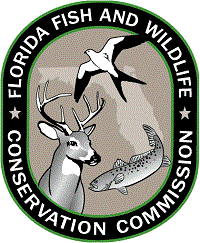Florida Fish Camps Earn National Acclaim

The Florida Fish and Wildlife Conservation Commission (FWC) claimed the top prize Nov. 21 for a Federal Aid in Sport Fish Restoration award in a nationwide competition administered by the American Fisheries Society (AFS).
Mike Stone of the AFS presented the 2013 Sport Fish Restoration Outstanding Project Award for aquatic education to the FWC, at its meeting in Weston, because of the FWC’s Fishing and Basic Boating Skills Camp program.
“Florida’s Fish Camp program exemplifies the professional, science-informed approach to fisheries education that effectively reaches the public, especially our youth, who are so critical to the future of fish and wildlife conservation,” said Stone.
The American Fisheries Society is the world’s oldest and largest organization dedicated to the fisheries profession and resources. It annually solicits and evaluates nominations for the project that best exemplifies the user-pays, public-benefits approach that is the Sport Fish Restoration Program.
“The FWC understands that the future of our state’s fish and wildlife resources depends on current and future generations caring enough about the resources to be committed to their care,” FWC Chairman Dick Corbett said recently when learning of the decision. “We greatly appreciate the AFS recognizing Florida’s wise use of these critical Sport Fish Restoration funds to promote conservation.”
The Sport Fish Restoration program began in 1950 and uses money paid by the industry on fishing tackle and other fees paid on pleasure boats and motor boat fuel sales to match state conservation agency funding. Florida received nearly $12 million in 2012. This is a major portion of the funding received by the FWC to help sustain recreational fisheries that generate $8.7 billion in economic impact for Florida and support more than 80,000 jobs.
The Fish Camp program was born in 2000 and nurtured through 2007 at the FWC’s Joe Budd Aquatic Education Center outside of Tallahassee. Rae Waddell, director of the Florida Youth Conservation Centers Network (www.fyccn.org), was instrumental in developing the camp outline and procedures.
According to FWC Fisheries Adminstrator Steve Marshall, results from an independent university evaluation of the pilot Fish Camp program demonstrate its groundbreaking success getting youth involved in healthy, outdoor recreation and becoming the next generation that cares about and understands Florida’s fisheries resources. Because of the results of the 2007 evaluation, the FWC has expanded the program, from one location with the potential to reach 80 children, to 14 locations across the state that can reach 900 children.
Marshall attributed much of the Fish Camp program success to the enthusiastic cooperation and support of organizations and agencies, including the Guy Harvey Oceans Foundation, which enabled expansion of the Fish Camp model to new locations offering saltwater fishing.

